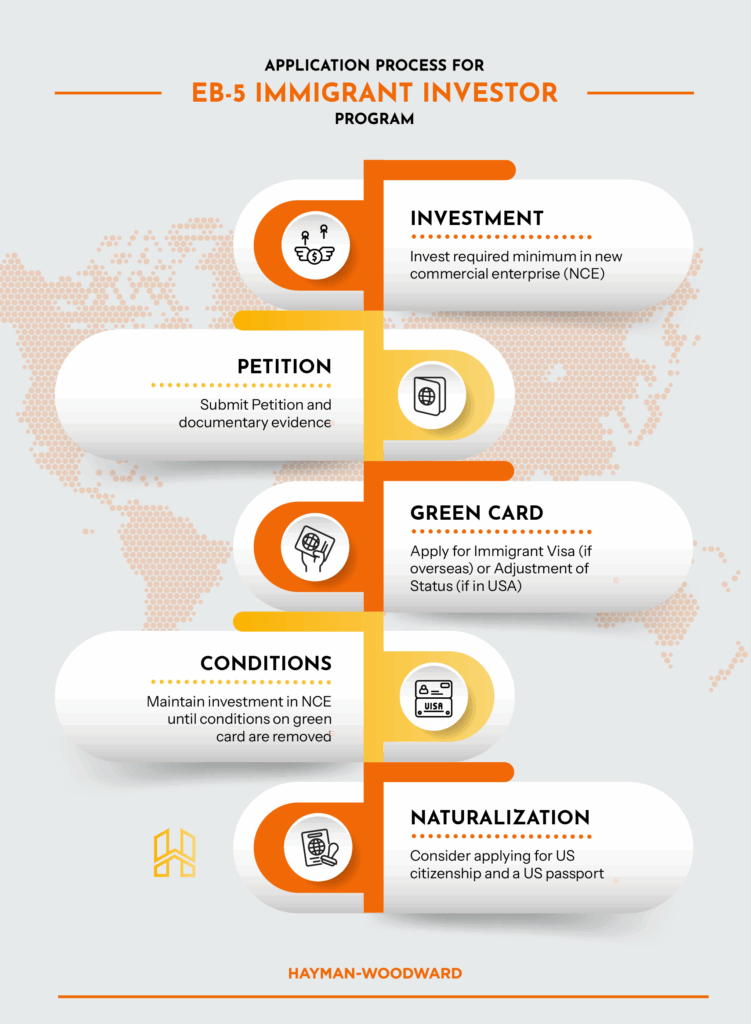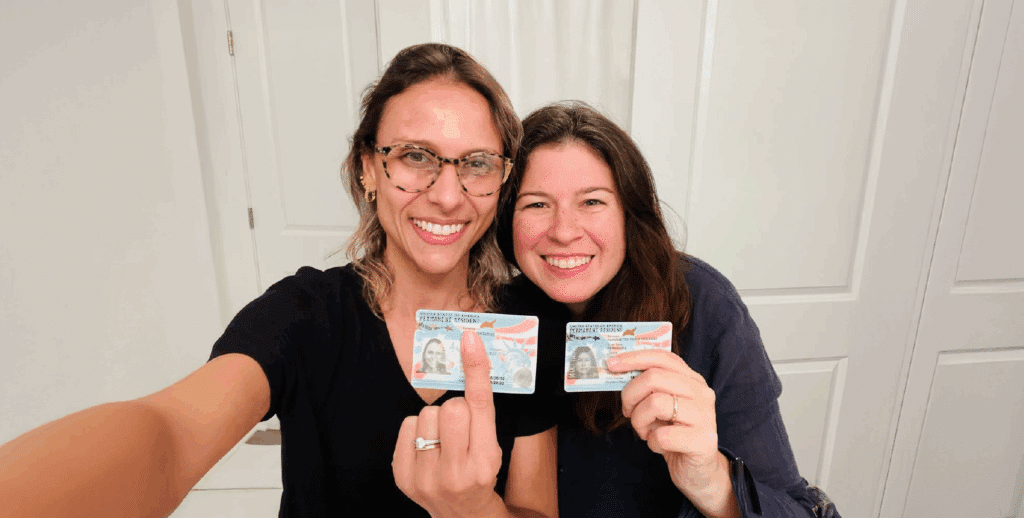U.S. Immigration in 2025: 5 Strategic Legal Pathways to Residency

In 2025, immigration to the United States continues to evolve. New policy shifts, redefined categories, and expanded processing windows have made certain legal pathways more accessible — and more predictable — for qualified individuals and families.
With 29 years of global legal practice and over 55,000 families assisted in obtaining lawful permanent residency, HAYMAN-WOODWARD has observed consistent patterns in what works — and why.
This article outlines five of the most strategic legal paths to U.S. residency, based on current immigration law, long-term viability, and real-world implementation across multiple jurisdictions.
1. EB-5 Visa — Residency Through Investment
The EB-5 program provides lawful permanent residence to individuals who invest in the United States and create employment opportunities for U.S. workers.

Requirements:
- Investment of $800,000 USD in a qualifying U.S. enterprise
- Creation of at least 10 full-time jobs
- Proven legal source of funds
Considerations in 2025:
- Certain EB-5 categories are current, allowing for more efficient adjudication timelines
- Includes spouse and children under 21
- Does not require a job offer or family relationship
This route is often used not only for relocation, but also for long-term security and diversification of residency options.
2. Immediate Relative Sponsorship — Family-Based Green Cards
For U.S. citizens with close relatives abroad, family-based immigration remains a direct and relatively expedited path to lawful residency.

Eligible Relationships:
- Spouse of a U.S. citizen
- Unmarried child under 21
- Parent of a U.S. citizen (aged 21+)
Legal Advantages:
- Not subject to numerical caps or annual quotas
- Typically processed faster than preference-based categories
- Strong approval rates when filed with complete documentation
This is one of the most consistent and stable areas of U.S. immigration law, with well-established precedent and protections.
3. O-1 Visa — For Individuals of Extraordinary Ability
The O-1 visa is designed for individuals who can demonstrate exceptional ability in the sciences, arts, education, business, or athletics.

Typical Applicants:
- CEOs and executives with international recognition
- Award-winning researchers or physicians
- Artists, athletes, and media professionals with documented acclaim
- Entrepreneurs with significant public or industry presence
O-1 visas are not subject to an annual cap and can be extended or transitioned into permanent residency through EB-1 or EB-2 pathways when appropriate.
It is a legally rigorous option, but one that offers significant flexibility to globally distinguished professionals.
4. F-1 to Residency — Education-Based Immigration Strategy
Many foreign nationals use U.S. education as a foundation for longer-term immigration plans.

The Legal Pathway:
- Enter the U.S. with an F-1 student visa
- Apply for OPT (Optional Practical Training) to gain work experience in one’s field of study (up to 3 years for STEM fields)
- Transition to H-1B, EB-2, or other employment-based green card categories
This approach allows for cultural integration, employment in a U.S. environment, and legal adaptability — especially for individuals with long-term relocation goals.
5. E-2 Hybrid Strategy — Residency Through Treaty Investment + Structuring
The E-2 visa permits nationals of certain treaty countries to invest in a U.S. business and live in the country while managing the enterprise.

Pathway Structure:
- Obtain citizenship from an E-2 treaty country (e.g. Turkey, Grenada)
- Invest approximately $150,000–$300,
000 USD in a U.S. business - Maintain residency under E-2 terms
- Transition later to a permanent visa such as EB-1, EB-5, or NIW, when applicable
For individuals from countries without an E-2 treaty (e.g. Brazil), acquiring second citizenship through investment is a common strategy. HAYMAN-WOODWARD provides comprehensive legal support across all jurisdictions involved in this process.
About HAYMAN-WOODWARD
HAYMAN-WOODWARD is a law firm with licensed attorneys in the United States, Brazil, Portugal, and the United Arab Emirates. With offices in Rio de Janeiro, Dubai, Lisbon, and the U.S., our team provides end-to-end legal strategy for global mobility, immigration, tax, corporate relocation, and international business structuring.
Since 1996, we have helped more than 55,000 families obtain legal residency or citizenship in the U.S., Europe, and the Middle East. Our clients include:
- Entrepreneurs and business owners
- High-net-worth individuals and family offices
- Dual-national professionals
- Executives relocating across continents
We work exclusively with compliant, legal, and document-based strategies — and we take pride in the precision of our process.
Next Steps
For those planning to pursue residency in the United States in 2025, legal clarity and proactive structure are essential.
To speak with one of our attorneys, please schedule a confidential consultation.
All consultations are conducted by bar-licensed legal professionals, and include an evaluation of eligibility, jurisdictional considerations, and the most suitable visa pathway for your profile.

